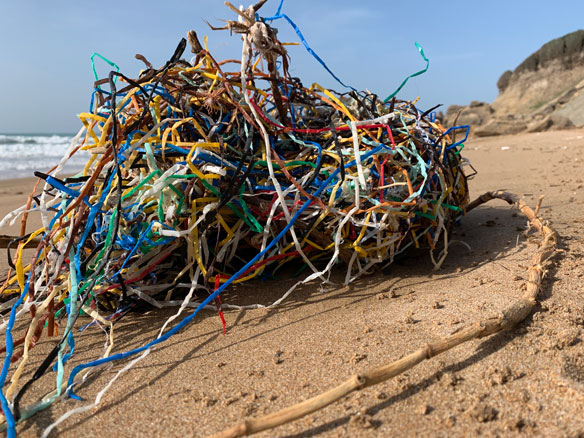
Photograph:
© SAF — Coastal Care
Excerpts;
With many people working from home during the COVID-19 pandemic, blue jeans are a more popular wardrobe choice than ever. But most people don’t think about microscopic remnants of their comfy jeans and other clothing that are shed during laundering.
Now, researchers reporting in ACS’ Environmental Science & Technology Letters have detected indigo denim microfibers not only in wastewater effluent, but also in lakes and remote Arctic marine sediments…
Read Full Article, PhysOrg (09-02-2020)
The world is paying a high price for cheap clothes; CNN (05-03-2020)
Bangladesh Pollution, Told in Colors and Smells; The New York Times (07-21-2013)
Bangladesh’s garment and textile industries have contributed heavily to what experts describe as a water pollution disaster. Environmental damage usually trails rapid industrialization in developing countries, and Bangladesh is already one of the world’s most environmentally fragile places, densely populated yet braided by river systems, with a labyrinth of low-lying wetlands leading to the Bay of Bengal…
Toxic Threads: Polluting Paradise A story of big brands and water pollution in Indonesia, by Greenpeace (04-28-2013)
Greenpeace International investigations have revealed the dumping of industrial wastewater containing a cocktail of toxic and hazardous chemicals, and caustic water, directly into the Citarum River, West Java. International fashion brands are linked to this pollution…









